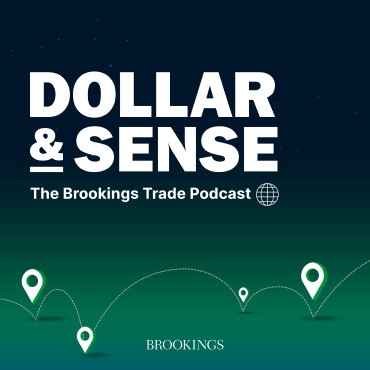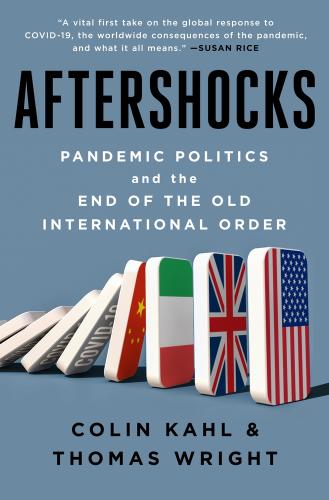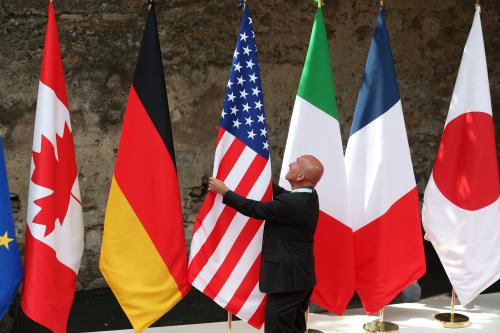The COVID-19 pandemic has been the greatest shock to the international order in decades, and unlike previous shocks, major powers like the United States did not step up to lead the world through it. Thomas Wright joins this episode to explain how that leadership vacuum shaped the pandemic response and has contributed to the rewriting of the postwar order.
Wright is a co-author of the new book “Aftershocks: Pandemic Politics and the End of the Old International Order,” which examines the political backdrop of the pandemic and how institutions performed once it arrived. He and David Dollar discuss why some economic institutions like central banks proved to be quite resilient and what the overall lack of international coordination means for the United States, China, and the global balance of power.
DAVID DOLLAR: Hi, I’m David Dollar, the host of the Brookings trade podcast Dollar and Sense. Today, my guest is Tom Wright, director of the Center on the United States and Europe at Brookings. Tom has a new book coming out called “Aftershocks: Pandemic Politics and the End of the Old International Order.” This shake up of the international order is going to be our topic today. Welcome to the show, Tom.
THOMAS WRIGHT: Thanks, David, it’s great to be on the podcast.
DOLLAR: So one of the themes in your book is that this current pandemic shock is different. We have had a lot of different shocks to the postwar system going back 50, 60, 70 years. What’s different about this shock?
WRIGHT: The book is co-authored with Colin Kahl, and Colin and I spoke early on in the pandemic. What really fascinated us was that this is a global shock when really there was no international leadership. Actually, there was a lot of rivalry, nationalism, unilateralism.
If you compare it to the 2008-2009 financial crisis, that was an imperfect response, but the world did come together for a moment. There was a significant G-20 meeting; the G-20 was elevated. The U.S. and China put aside differences and worked together. Dan Drezner wrote a book about that period and called it “The System Worked” because even though there were lots of problems, basically the international community cooperated.
In this case, you have a Trump administration in power in the United States and not particularly interested in the international order—actually seeing it as a bit of a threat. In China, you have a much more sort of repressive and secretive regime maybe than back at the time of the financial crisis. You have U.S.-China rivalry as the overarching framework for the relationship. Then in Brazil we have Bolsonaro. In India, Modi. In the UK, Brexit has happened. So all around the world, politics have become more nationalistic and less cooperative. What we wanted to try to do was to document this period and say what worked, what didn’t, how bad was this, and how does the world respond when basically there’s no one at home to guide the ship? That was the overarching question that we wanted to answer.
The Brookings Institution is committed to quality, independence, and impact.
We are supported by a diverse array of funders. In line with our values and policies, each Brookings publication represents the sole views of its author(s).









Commentary
PodcastWill COVID-19 mark the end of the old international order?
August 16, 2021
Listen on
Dollar and Sense Podcast